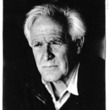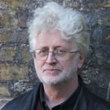Spies of the Balkans
Description
More Details
9781410428585
9781442306059
9780679603702
9781442306066
144230605
Excerpt
Similar Series From Novelist
Similar Titles From NoveList
Similar Authors From NoveList
Published Reviews
Booklist Review
*Starred Review* Furst's early WWII espionage novels The World at Night (1996) and Red Gold (1999) took place in Paris during the Occupation, but lately he has moved earlier in time, to the war's beginnings, when spies of all stripes, official and unofficial, were gathering information and securing alliances for the conflagration to come. He has also moved to the edges of the European theater, to Poland in Spies of Warsaw (2008) and now to Greece and the Balkans. When this story begins, Greece is at war with Italy, and Costa Zannis, a policeman in the northern Greek port city of Salonika, recently injured in battle, has reported back for duty at his old job. Spies English, Turkish, Bulgarian are swarming the city, as everyone awaits the Nazi response to the Greek victories over the Italians. Inevitably, Zannis becomes involved in the intrigue, helping to ferry German Jews from Berlin through Greece to neutral Turkey. And, just as inevitably, he falls in love Furst has always excelled at portraying the way passion blooms while storms gather. There is nothing especially new about this entry in the Furst canon, but the Balkan setting adds another element of tension, as the oft-invaded region faces yet another onslaught. And, once again, Furst captures in brilliant high-definition the roiling, contradictory emotions that flare when in wartime. When somebody takes your country, you help them or you fight them, Zannis' friend, Pavlic, a patriot from Zagreb, says. Yes, but Zannis is equally driven by desires to protect his family and claim a separate peace for himself and his lover. On that delicate psychological fault line, Furst has carved a fabulous career.--Ott, Bill Copyright 2010 Booklist
Publisher's Weekly Review
Set in Greece in 1940, this powerful WWII thriller from Furst (The Spies of Warsaw) focuses on Costa Zannis, a senior Salonika police official known for his honesty and ability to settle matters "before they got out of hand." As the Nazis' intentions for Europe's Jews becomes clear, Zannis goes out of his way to aid refugees seeking to escape Germany. When Mussolini's troops invade Greece, Zannis joins the army, where he meets Capt. Marko Pavlic, who as a policeman in Zagreb investigated crimes committed by the Ustashi, Croatian fascists. With their similar politics, Zannis and Pavlic soon become friends and allies. Subtle details foreshadow the coming crimes perpetrated by the Nazis in the Balkans. For example, Zannis learns from a colleague that someone has been taking photos of the contents of a synagogue so that the Germans can more easily identify what to plunder. Furst fans will welcome seeing more books set in less familiar parts of Europe. (June) (c) Copyright PWxyz, LLC. All rights reserved
Library Journal Review
Furst's strength is his consistency; the dude can really evoke an atmosphere, can describe-really intimately-a situation or an encounter that can only have happened, like, 60 years ago. I don't think of myself as a reader of historical fiction, but I like spy stories, a compelling narrative, World War II plots with the clear good guy/bad guy dynamic, and literate detail. So I like Furst, who makes it easy for me to consider the un-American view, and if there's anything I like, it's a little not-American now and then. These Night Soldiers books are populated with lots of not-Americans, from French cinematographers to Italian journalists to Hungarian ad men. Furst's oeuvre has enough of the familiar to keep me anchored, but enough of the unusual to keep me interested. Spies plunks readerdudes down in early-war Macedonia, a primitive place where a policeman works with undercover supersecret spy types against Benito Mussolini to devise a safe escape route from Germany. Hell, yeah. (See LJ's original review in the May 15, 2010 issue.)-Douglas Lord, "Books for Dudes," BookSmack! 7/1/10 (c) Copyright 2010. Library Journals LLC, a wholly owned subsidiary of Media Source, Inc. No redistribution permitted.
Booklist Reviews
*Starred Review* Furst's early WWII espionage novels—The World at Night (1996) and Red Gold (1999)—took place in Paris during the Occupation, but lately he has moved earlier in time, to the war's beginnings, when spies of all stripes, official and unofficial, were gathering information and securing alliances for the conflagration to come. He has also moved to the edges of the European theater, to Poland in Spies of Warsaw (2008) and now to Greece and the Balkans. When this story begins, Greece is at war with Italy, and Costa Zannis, a policeman in the northern Greek port city of Salonika, recently injured in battle, has reported back for duty at his old job. Spies—English, Turkish, Bulgarian—are swarming the city, as everyone awaits the Nazi response to the Greek victories over the Italians. Inevitably, Zannis becomes involved in the intrigue, helping to ferry German Jews from Berlin through Greece to neutral Turkey. And, just as inevitably, he falls in love—Furst has always excelled at portraying the way passion blooms while storms gather. There is nothing especially new about this entry in the Furst canon, but the Balkan setting adds another element of tension, as the oft-invaded region faces yet another onslaught. And, once again, Furst captures in brilliant high-definition the roiling, contradictory emotions that flare when in wartime. "When somebody takes your country, you help them or you fight them," Zannis' friend, Pavlic, a patriot from Zagreb, says. Yes, but Zannis is equally driven by desires to protect his family and claim a separate peace for himself and his lover. On that delicate psychological fault line, Furst has carved a fabulous career. Copyright 2010 Booklist Reviews.
Library Journal Reviews
In Salonika, Macedonia, just as World War II is erupting, senior police official Costa Zannis must help organize an escape route from Berlin through the Balkans to neutral Turkey. Sounds like classic Furst! With a six-city tour. Copyright 2010 Reed Business Information.
Library Journal Reviews
In his intense yet subtle way, Furst (The Spies of Warsaw) takes readers to the Greek city of Salonika (now more commonly known as Thessaloniki) in October 1940, just months before the Germans hoist their occupying flag on the Acropolis the following April. Senior police official Costa Zannis, calm yet passionate in his lusty body and loyal soul, has insinuating ways that lead him to deep and sensitive knowledge that others covet. Just as Fascist Italy starts its attack on Greece, Zannis begins working with confederates in other Balkan cities to shepherd escaping German Jews to safety in Turkey until time runs out for them all. VERDICT With ten novels behind him, Furst has perfected a historical espionage genre that illuminates an ordinary man whom fate has picked for quiet heroism. Furst fans will argue about their favorite books, but the Balkan twists and turns in this masterly triumph of plotting, history, and character development will be a hit this summer. [See Prepub Alert, LJ 2/15/10.]—Barbara Conaty, Falls Church, VA
[Page 68]. Copyright 2010 Reed Business Information.Library Journal Reviews
Furst's strength is his consistency; the dude can really evoke an atmosphere, can describe-really intimately-a situation or an encounter that can only have happened, like, 60 years ago. I don't think of myself as a reader of historical fiction, but I like spy stories, a compelling narrative, World War II plots with the clear good guy/bad guy dynamic, and literate detail. So I like Furst, who makes it easy for me to consider the un-American view, and if there's anything I like, it's a little not-American now and then. These Night Soldiers books are populated with lots of not-Americans, from French cinematographers to Italian journalists to Hungarian ad men. Furst's oeuvre has enough of the familiar to keep me anchored, but enough of the unusual to keep me interested. Spies plunks readerdudes down in early-war Macedonia, a primitive place where a policeman works with undercover supersecret spy types against Benito Mussolini to devise a safe escape route from Germany. Hell, yeah. (See LJ's original review in the May 15, 2010 issue.)-Douglas Lord, "Books for Dudes," BookSmack! 7/1/10 Copyright 2010 Reed Business Information.
Publishers Weekly Reviews
Set in Greece in 1940, this powerful WWII thriller from Furst (The Spies of Warsaw) focuses on Costa Zannis, a senior Salonika police official known for his honesty and ability to settle matters "before they got out of hand." As the Nazis' intentions for Europe's Jews becomes clear, Zannis goes out of his way to aid refugees seeking to escape Germany. When Mussolini's troops invade Greece, Zannis joins the army, where he meets Capt. Marko Pavlic, who as a policeman in Zagreb investigated crimes committed by the Ustashi, Croatian fascists. With their similar politics, Zannis and Pavlic soon become friends and allies. Subtle details foreshadow the coming crimes perpetrated by the Nazis in the Balkans. For example, Zannis learns from a colleague that someone has been taking photos of the contents of a synagogue so that the Germans can more easily identify what to plunder. Furst fans will welcome seeing more books set in less familiar parts of Europe. (June)
[Page 30]. Copyright 2010 Reed Business Information.



















































